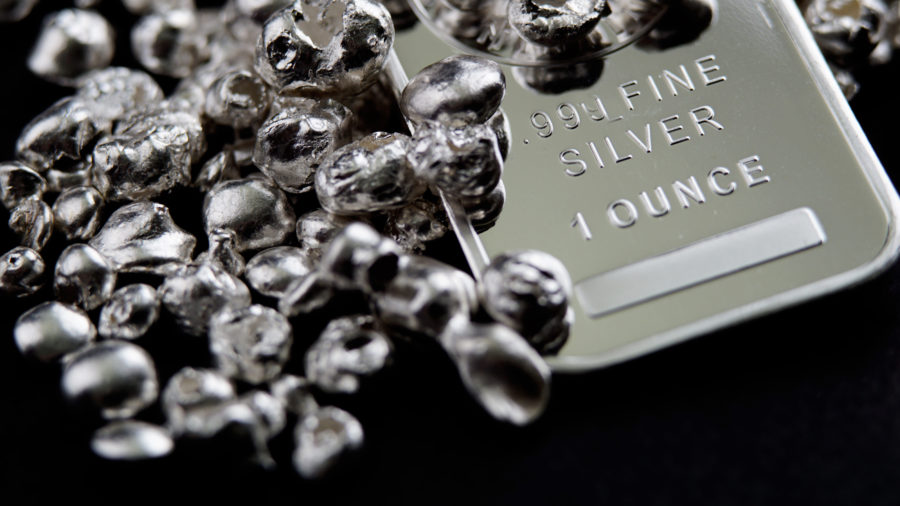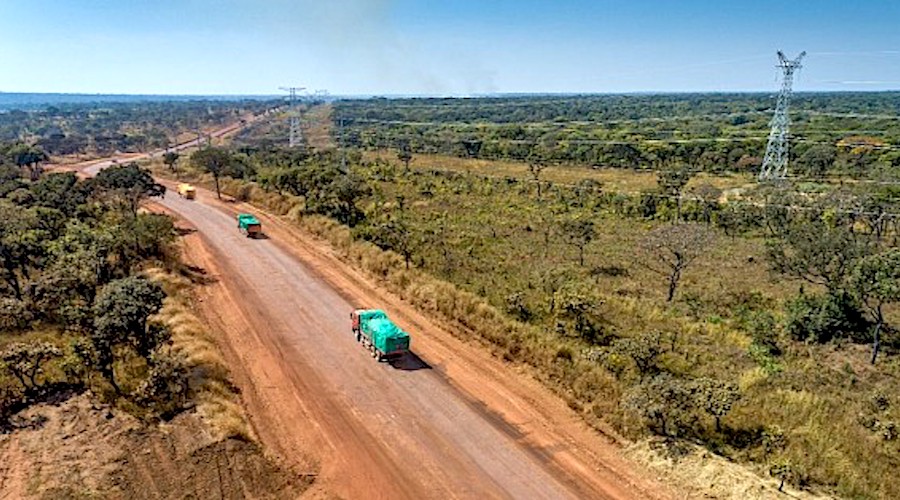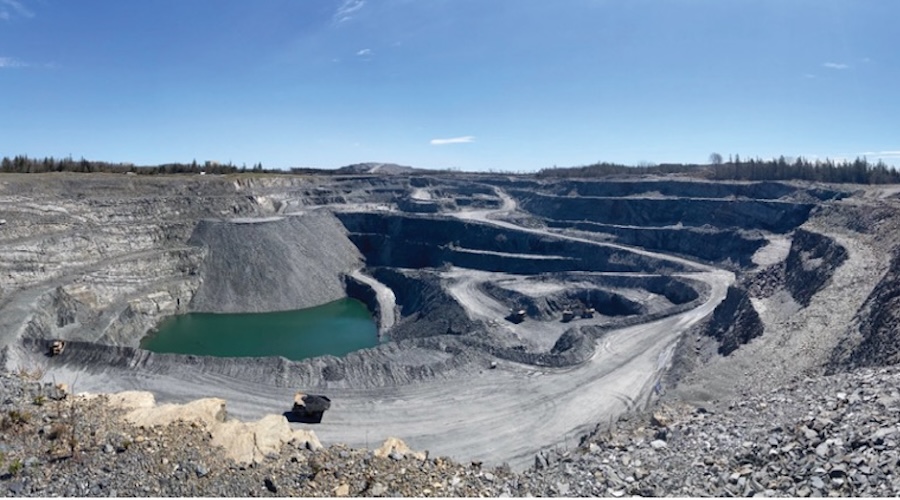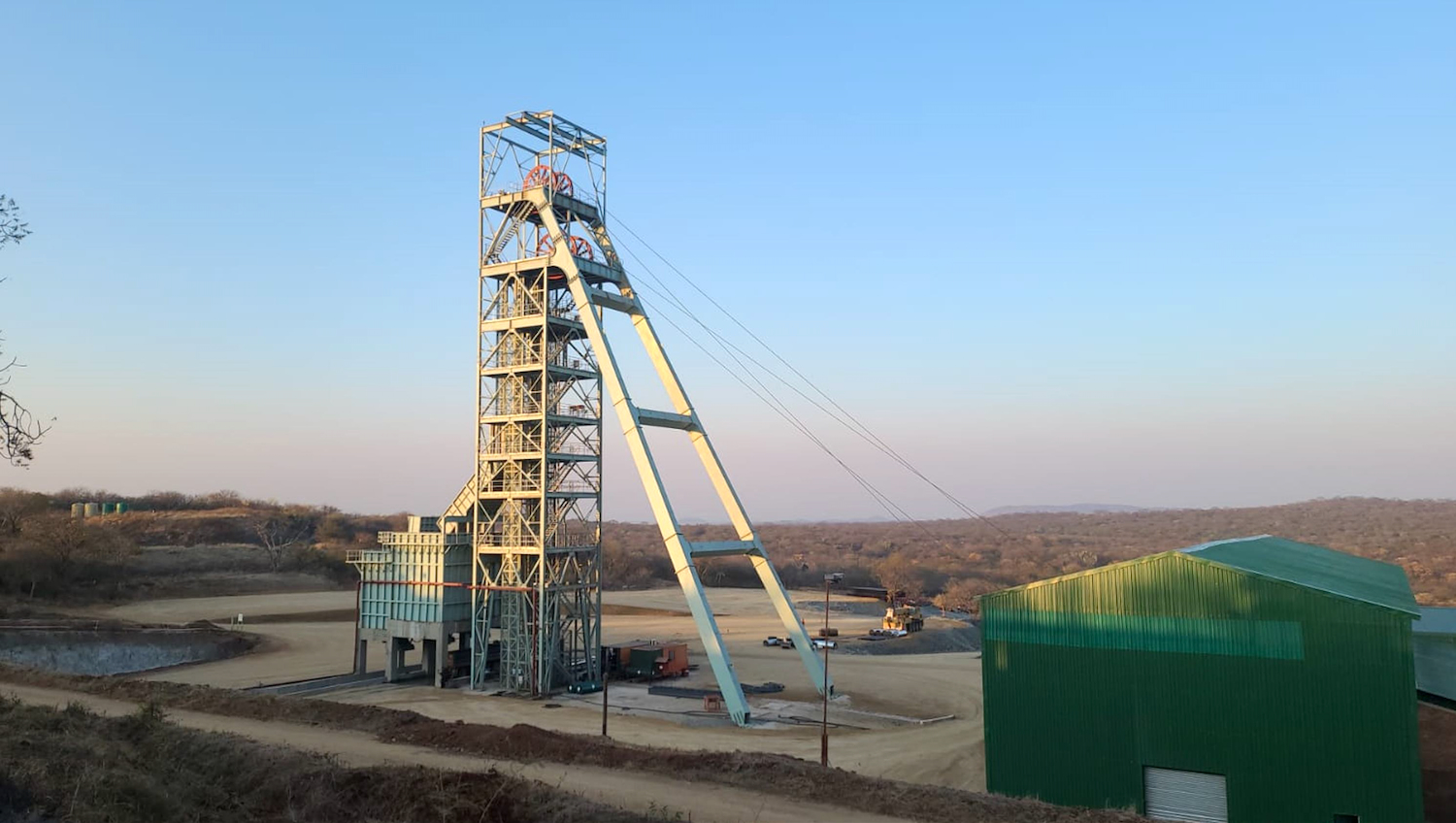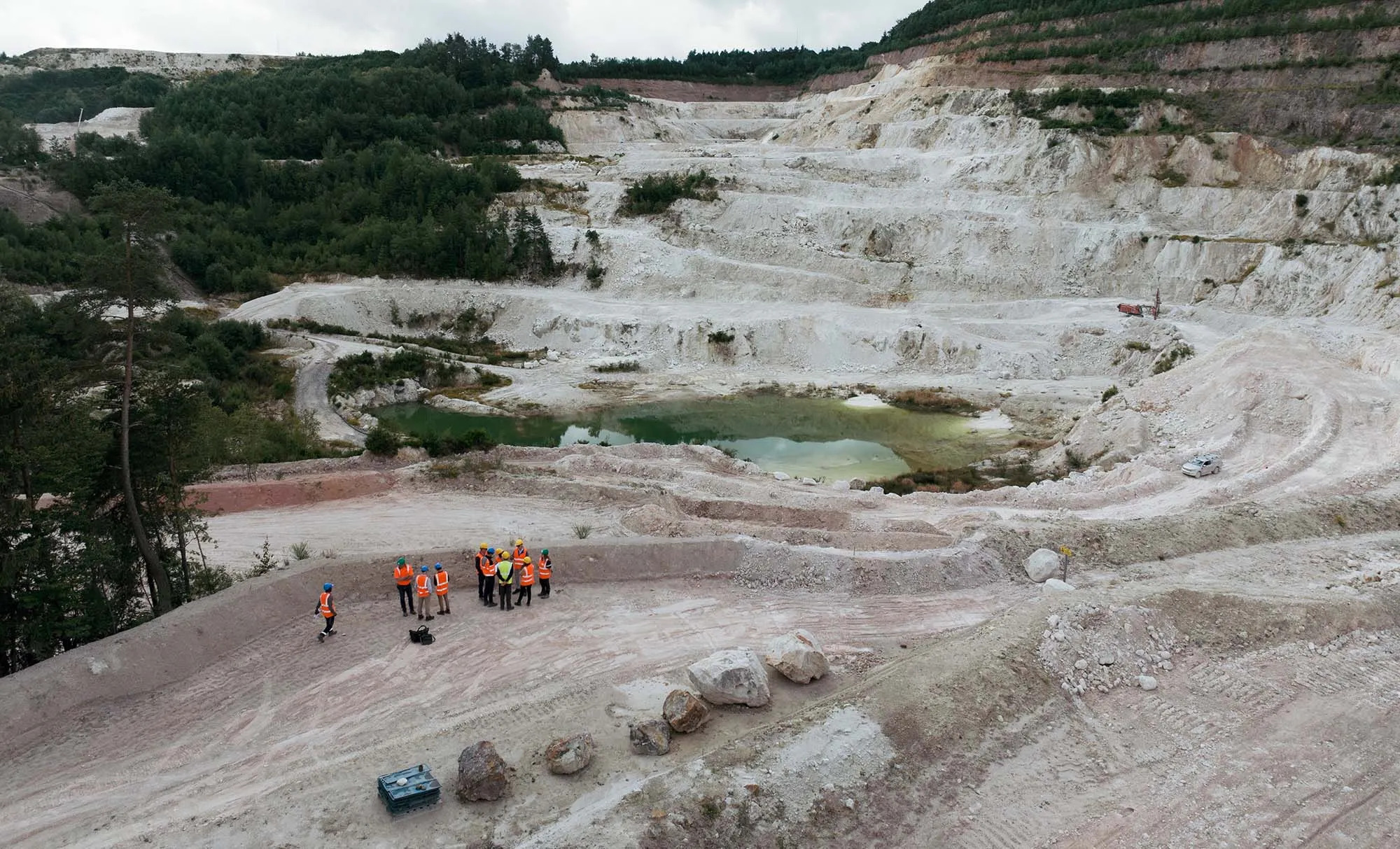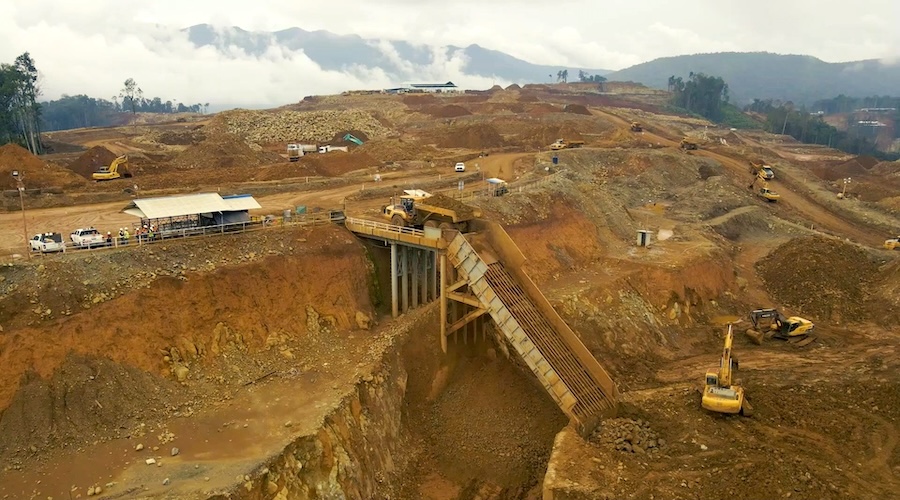Juggernaut Intersects 8.27 G/T AUEQ over 11.03 Meters on Eskay-Style VHMS Kokomo Target that Remains Open on Midas, Golden Triangle, B.C.
(via TheNewswire)
Vancouver, British Columbia – TheNewswire - January 6, 2025 – Juggernaut Exploration Ltd (JUGR.V) (OTCQB: JUGRF) (FSE: 4JE) (the “Company” or “Juggernaut”) is pleased to report results from its 2024 drill campaign at the Kokomo Volcanogenic Hosted Massive Sulphide (VHMS) target where drill hole MD-24-47 intercepted 8.27 g/t AuEq (6.21 g/t Au, 99.63 g/t Ag, 0.42 % Cu, and 1.08 % Zn) over 11.03 m and remains open to depth and to the North on its 100 % controlled Midas property, Golden Triangle, British Columbia. Strong gold values, as well as sulphide mineralization consistent with what is typically observed in proximity of an Eskay-style VHMS system in the form of moderate, semi-massive and/or massive chalcopyrite, sphalerite and pyrite hosted in a quartz-sericite-chlorite schist strongly indicates the potential for a VHMS deposit at depth. Integration of additional assay results will focus future drill plans to expand on this discovery both to depth and on trend to the North, where the high-grade mineralization remains open.
Dan Stuart, President and CEO of Juggernaut Exploration, states, “It is exciting to have confirmation with the drill bit of broad high-grade gold VHMS mineralization on our Flagship Midas property. The fact that mineralization is widespread on surface as well as in drill holes strongly indicates a large system at play on the property. With the 2024 drilling we have potentially intercepted the core of the VHMS system and are now in a position to expand on this exciting discovery both along strike to the north and to depth with future drilling.”
Midas 2024 Drilling Highlights
-
Eskey-style VHMS mineralization with grades up to 8.27 g/t AuEq over 11.03 m and associated alteration has been intercepted at the Kokomo target and remains open to depth and to the north. The excellent gold-copper-zinc mineralization confirmed at Kokomo strongly indicates close proximity to the heart of the VHMS system. Midas Drilling Map 2024
-
MD-24-47 collared from the Kokomo Pad intercepted 8.27 g/t AuEq (6.21 g/t Au, 99.63 g/t Ag, 0.42 % Cu, and 1.08 % Zn) over 11.03 m, including 9.32 g/t AuEq (7.01 g/t Au, 112.30 g/t Ag, 0.46 Cu and 1.20 % Zn) over 9.75 m, and 22.77 g/t AuEq (15.09 g/t Au, 325.58 g/t Ag, 1.91 % Cu and 4.59 % Zn) over 1.90 m. MD-24-47_kokomo
-
The 2024 drill results in combination with results from previous years confirm an extensive north-south gold-copper-zinc rich mineralized trend that remains open to the north and to depth extending for 550 m on strike with a large relatively shallow 100 to 200 meter Induced Polarization (IP) chargeability and resistivity anomaly. 3D IP Inversion map
-
The gold and base metals component clearly increases towards the north towards the Kokomo showing and beyond located on surface above the IP anomaly strongly indicating close proximity to the heart of a VHMS deposit. This has been confirmed with the 2024 discovery hole MD-24-47, the only hole to test the Kokomo target. and the strong IP anomaly at depth that intercepted 8.27 g/t AuEq over 11.03 m from 148.25 meters to 159.28 meters and remains open.
-
Multiple additional drill holes have intersected Au-Cu-Zn mineralization along a 700 m trend to the South from the Kokomo target with intervals characterized by moderate, semi-massive and/or massive sulphide mineralization consisting of chalcopyrite, sphalerite and pyrite hosted in a quartz-sericite-chlorite schist. Sulphides generally occur as semi-massive to massive aggregates and stringers.
-
The strong mineralization is usually enveloped by a zone of alteration consisting of quartz-sericite-chlorite schist containing disseminated sulphide, including pyrite and minor chalcopyrite and sphalerite and remains open, indicating the presence of a large gold-rich VHMS system on Midas.
-
The strong gold values and sulphide mineralization observed in extended intervals from drill holes completed during the 2024 program is strongly reminiscent of the surface samples collected at Kokomo which assayed up to 9.343 gpt Au, 117 gpt Ag, 1.58 % Cu and 1.77 % Zn.
-
The system remains open along strike to the north and to depth, providing excellent additional opportunity for discovery.
Drill hole MD-24-47 collared from the Kokomo showing intercepted 8.27 g/t AuEq over 11.03 m (6.21 g/t Au, 99.63 g/t Ag, 0.42 % Cu, and 1.08 % Zn) at a depth of 148.25 m to 159.28 m, well below the surface mineralization that assayed up to 9.343 gpt Au, 117 gpt Ag, 1.58 % Cu and 1.77 % Zn. The mineralized system remains open to the north and to depth. Additional intervals of gold-copper-zinc mineralization intercepted to the south of the Kokomo showing, combined with the vectoring information obtained from previous years drilling, strongly indicate that the mineralization in strongest towards the north.
Table 1: Drill hole highlights from the 2024 Midas drill program
|
Hole ID |
From (m) |
To (m) |
Interal (m) |
Au (g/t) |
Ag (g/t) |
Cu (%) |
Pb (%) |
Zn (%) |
AuEq (g/t) |
|
|
MD-24-47 |
Interval |
148.25 |
159.28 |
11.03 |
6.21 |
99.63 |
0.42 |
0.01 |
1.08 |
8.27 |
|
Including |
148.25 |
158.00 |
9.75 |
7.01 |
112.30 |
0.46 |
0.01 |
1.20 |
9.32 |
|
|
Including |
154.60 |
156.50 |
1.90 |
15.09 |
325.58 |
1.91 |
0.02 |
4.59 |
22.77 |
|
|
Including |
146.03 |
147.10 |
1.07 |
21.30 |
444.00 |
3.14 |
0.03 |
5.91 |
32.23 |
|
|
Interval |
116.33 |
118.25 |
1.92 |
0.66 |
3.99 |
0.11 |
0.00 |
0.13 |
0.87 |
|
|
Including |
117.25 |
118.25 |
1.00 |
0.97 |
5.75 |
0.14 |
0.00 |
0.21 |
1.27 |
|
|
MD-24-55 |
Interval |
69.00 |
72.85 |
3.85 |
0.52 |
7.97 |
0.00 |
0.00 |
0.00 |
0.62 |
|
Including |
70.00 |
72.85 |
2.85 |
0.66 |
8.70 |
0.00 |
0.00 |
0.00 |
0.76 |
|
|
Including |
72.00 |
72.85 |
0.85 |
1.03 |
10.17 |
0.00 |
0.00 |
0.10 |
1.15 |
|
|
MD-24-56 |
Interval |
45.00 |
46.00 |
1.00 |
1.19 |
0.00 |
0.00 |
0.00 |
0.00 |
1.19 |
|
MD-24-59 |
Interval |
50.95 |
53.00 |
2.05 |
1.11 |
11.25 |
0.00 |
0.00 |
0.00 |
1.24 |
|
Including |
52.05 |
53.00 |
0.95 |
1.42 |
11.30 |
0.00 |
0.00 |
0.00 |
1.55 |
Mineralization consists of moderate (3-6 %), semi-massive (6-10 %) and/or massive (> 10 %) chalcopyrite, sphalerite and pyrite hosted in a quartz-sericite-chlorite schist. Sulphides generally occur as semi-massive to massive aggregates and stringers. This strong mineralization is enveloped by a zone of alteration consisting of quartz-sericite-chlorite schist characterized by disseminated sulphide, including pyrite and minor chalcopyrite and sphalerite and remains open. The strong gold values and sulphide mineralization observed in extended intervals from drill holes completed during the 2024 program is strongly reminiscent of the surface samples collected at Kokomo which assayed up to 9.343 gpt Au, 117 gpt Ag, 1.58 % Cu and 1.77 % Zn.
Integration of additional assay results and further modelling will focus future drill plans to expand the high-grade drill discovery zone (8.27 g/t AuEq over 11.03 meters) to depth and to the North, where the high-grade mineralization remains open.
Highlights from the Midas Eskay-Style Kokomo VHMS target
-
Highlights of the Midas property includes the discovery of the gold-silver-copper-zinc rich Kokomo showing (9.343 gpt Au, 117 gpt Ag, 1.58 % Cu and 1.77 % Zn), drill hole MD-19-18 (6.22 m of 0.31 gpt Au, 0.95 m of 1.50 gpt Au with 1.94 % Cu and 3.22 m of 0.36 gpt Au) and the VG Zone (2.24 gpt Au, 6.83 gpt Ag, 0.18 % Cu and 1.04 % Zn over 4.80 meters).
-
Extensive broad copper-zinc-gold rich intervals consisting of considerable chalcopyrite, sphalerite and pyrite in aggregates, stringers and veinlets have been intersected in multiple drill holes from 2023 and 2024 collared from an area encompassing the VG Zone and Kokomo showing consistent with an Eskay-style VHMS system.
-
Results from the 2023 drill campaign intersected weak to moderate sulphide mineralization in the south that assayed up to 1.56 gpt AuEq (0.35 gpt Au, 6.10 gpt Ag, 0.64 % Cu and 0.67 % Zn) over 5.00 meters, suggesting that mineralization is stronger towards the north, including the Kokomo target and beyond.
-
The drill results in combination with results from previous years indicate an extensive north-south gold-copper-zinc rich mineralized trend that remains open extending for 550 m on strike with a large relatively shallow Induced Polarization (IP) chargeability and resistivity anomaly. The gold and base metals component clearly increases towards the Kokomo showing and beyond, strongly indicating proximity to the heart of a VHMS deposit.
-
The host rock to the Kokomo showing has been mapped by Juggernaut former senior geologist S. Roach as well as the British Columbia Geological Survey (BCGS; M. McKeown, J. Nelson and R. Friedman, 2007)as a rhyolitic tuff with strong phyllic alteration (quartz-sericite-pyrite) from the Mt Attree volcanics, a unit highly prospective for VHMS deposits
-
The geology, geochemistry, alteration, and extensive underlying geophysical anomaly coupled with the high-grade polymetallic Au, Ag, Cu and Zn mineralization in semi-massive to massive sulphides seen in drill core and outcrop strongly indicates the potential of a new Eskay-style VHMS discovery.
The Midas property is 100% controlled and covers 20,803 hectares and is located 24 km southeast of Terrace, British Columbia in close proximity to logging access roads, power, railway and major infrastructure. The property is located in an area of recent glacial abatement and permanent snowpack recession at the southern end of the Golden Triangle, British Columbia. Multiple high-grade gold grab, chips and channel samples were collected from the Kokomo VHMS target where drill hole MD-24-47 intercepted 8.27 g/t AuEq (6.21 g/t Au, 99.63 g/t Ag, 0.42 % Cu, and 1.08 % Zn) over 11.03 m and a 1.00 m chip sample assayed 9.343 gpt Au, 117 gpt Ag, 1.58 % Cu and 1.77 % Zn and is drill ready. Relatively shallow Induced Polarization (IP) chargeability and resistivity anomalies extend under the Kokomo showing on trend to the south for at least 550 m, conducive for a buried VHMS containing semi-massive to massive sulphides at depth. Channel samples highlights from the VG Zone include 10.28 gpt Au over 4.34 meters; 15.37 gpt Au over 2 meters; and 5.43 gpt Au over 3.11 meters. Historic drill results from the Midas property include hole MD-18-16 which intersected the peripheral zone of the IP anomaly core and returned 0.56 g/t AuEq over 35.35 meters; hole MD-18-08, which assayed 6.85 gpt Au over 9 meters and narrowly missed a strong IP chargeability anomaly; and hole MD-18-01 which intersected 3.27 gpt AuEq over 4.80 meters and ended before it reached the core of a strong IP chargeability anomaly.
Table 2: 2024 Midas drill hole collar information
|
Hole ID |
CRS |
Northing (m) |
Easting (m) |
Elevation (m) |
Azimuth (deg) |
Dip (deg) |
Length (m) |
|
MD-24-59 |
NAD83 / UTM zone 9N |
543547 |
6023130 |
1334 |
285 |
55 |
124 |
|
MD-24-58 |
NAD83 / UTM zone 9N |
543614 |
6023046 |
1322 |
210 |
55 |
151 |
|
MD-24-57 |
NAD83 / UTM zone 9N |
543291 |
6022857 |
1416 |
80 |
60 |
322 |
|
MD-24-56 |
NAD83 / UTM zone 9N |
543614 |
6023047 |
1323 |
270 |
60 |
242 |
|
MD-24-55 |
NAD83 / UTM zone 9N |
543355 |
6023087 |
1425 |
70 |
60 |
287 |
|
MD-24-54 |
NAD83 / UTM zone 9N |
543290 |
6022857 |
1417 |
65 |
60 |
284 |
|
MD-24-53 |
NAD83 / UTM zone 9N |
543355 |
6023087 |
1425 |
50 |
60 |
206 |
|
MD-24-52 |
NAD83 / UTM zone 9N |
543309 |
6023215 |
1427 |
270 |
60 |
172 |
|
MD-24-51 |
NAD83 / UTM zone 9N |
543314 |
6023213 |
1427 |
130 |
50 |
370 |
|
MD-24-50 |
NAD83 / UTM zone 9N |
543315 |
6023215 |
1427 |
90 |
50 |
111 |
|
MD-24-49 |
NAD83 / UTM zone 9N |
543315 |
6023217 |
1427 |
70 |
60 |
193 |
|
MD-24-48 |
NAD83 / UTM zone 9N |
543332 |
6023386 |
1402 |
140 |
65 |
85 |
|
MD-24-47 |
NAD83 / UTM zone 9N |
543332 |
6023386 |
1401 |
110 |
50 |
191 |
BINGO PROPERTY UPDATE
Results from the Bingo drill campaign have been received and assays up to 1.68 g/t AuEq (1.08 g/t Au and 3.97 g/t Ag) over 2.65 meters have been intersected in hole BI-24-09 from the Bingo Main Zone. A number of holes contain anomalous gold values ranging from 0.19 g/t AuEq to 1.11 g/t AuEq (see table below). The remainder of the holes drilled along strike of the shear zone at the Bingo Main Zone have returned results that are currently not considered significant. All drill holes completed to date contain anomalous values of gold. Compilation and interpretation of all data from the project remains ongoing focused on delineating future drill targets.
Table 3: Drill hole highlights from the 2024 Bingo drill program
|
Hole ID |
From (m) |
To (m) |
Interval (m) |
Au (g/t) |
Ag (g/t) |
AuEq (g/t) |
|
|
BI-24-09 |
Interval |
29.85 |
32.50 |
2.65 |
1.08 |
3.98 |
1.68 |
|
BI-24-11 |
Interval |
33.00 |
37.00 |
4.00 |
0.44 |
3.25 |
0.48 |
|
Including |
34.00 |
37.00 |
3.00 |
0.55 |
4.33 |
0.61 |
|
|
BI-24-12 |
Interval |
40.00 |
47.35 |
7.35 |
0.49 |
0.00 |
0.49 |
|
Including |
40.00 |
43.00 |
3.00 |
0.29 |
0.00 |
0.29 |
|
|
and |
43.00 |
45.85 |
2.85 |
0.36 |
0.00 |
0.36 |
|
|
and |
45.85 |
47.35 |
1.50 |
1.11 |
0.00 |
1.11 |
|
|
BI-24-13 |
Interval |
50.11 |
55.80 |
5.69 |
0.19 |
0.00 |
0.19 |
|
Including |
50.11 |
53.00 |
2.89 |
0.29 |
0.00 |
0.29 |
Table 4: 2024 Bingo drill hole collar information
|
Hole ID |
CRS |
Northing (m) |
Easting (m) |
Elevation (m) |
Azimuth (deg) |
Dip (deg) |
Length (m) |
|
BI-24-31 |
NAD83 / UTM zone 9N |
442663 |
6153277 |
1425 |
145 |
50 |
293 |
|
BI-24-30 |
NAD83 / UTM zone 9N |
442351 |
6153019 |
1357 |
45 |
50 |
185 |
|
BI-24-29 |
NAD83 / UTM zone 9N |
442351 |
6153019 |
1357 |
90 |
60 |
138 |
|
BI-24-28 |
NAD83 / UTM zone 9N |
442351 |
6153019 |
1357 |
90 |
50 |
44 |
|
BI-24-27 |
NAD83 / UTM zone 9N |
442351 |
6153019 |
1357 |
125 |
50 |
231 |
|
BI-24-26 |
NAD83 / UTM zone 9N |
442351 |
6153019 |
1357 |
200 |
60 |
154 |
|
BI-24-25 |
NAD83 / UTM zone 9N |
442351 |
6153019 |
1357 |
270 |
75 |
151 |
|
BI-24-24 |
NAD83 / UTM zone 9N |
442387 |
6152652 |
1313 |
100 |
50 |
137 |
|
BI-24-23 |
NAD83 / UTM zone 9N |
442387 |
6152652 |
1305 |
70 |
50 |
88 |
|
BI-24-22 |
NAD83 / UTM zone 9N |
442387 |
6152652 |
1305 |
35 |
50 |
223 |
|
BI-24-21 |
NAD83 / UTM zone 9N |
442222 |
6152606 |
1295 |
95 |
50 |
125 |
|
BI-24-20 |
NAD83 / UTM zone 9N |
442276 |
6152659 |
1307 |
120 |
80 |
111 |
|
BI-24-19 |
NAD83 / UTM zone 9N |
442276 |
6152659 |
1307 |
80 |
80 |
117 |
|
BI-24-18 |
NAD83 / UTM zone 9N |
442276 |
6152659 |
1307 |
40 |
80 |
121 |
|
BI-24-17 |
NAD83 / UTM zone 9N |
442290 |
6152777 |
1331 |
145 |
75 |
146 |
|
BI-24-16 |
NAD83 / UTM zone 9N |
442290 |
6152777 |
1331 |
105 |
75 |
139 |
|
BI-24-15 |
NAD83 / UTM zone 9N |
442290 |
6152777 |
1331 |
90 |
75 |
130 |
|
BI-24-14 |
NAD83 / UTM zone 9N |
442276 |
6152659 |
1307 |
40 |
80 |
118 |
|
BI-24-13 |
NAD83 / UTM zone 9N |
442259 |
6152870 |
1337 |
265 |
60 |
133 |
|
BI-24-12 |
NAD83 / UTM zone 9N |
442259 |
6152870 |
1337 |
130 |
65 |
100 |
|
BI-24-11 |
NAD83 / UTM zone 9N |
442259 |
6152870 |
1337 |
100 |
65 |
107 |
|
BI-24-10 |
NAD83 / UTM zone 9N |
442259 |
6152870 |
1337 |
0 |
90 |
295 |
|
BI-24-09 |
NAD83 / UTM zone 9N |
442259 |
6152870 |
1337 |
80 |
65 |
115 |
|
BI-24-08 |
NAD83 / UTM zone 9N |
442259 |
6152870 |
1337 |
60 |
65 |
100 |
Qualified Person
Rein Turna P. Geo is the qualified person as defined by National Instrument 43-101, for Juggernaut Exploration projects, and supervised the preparation of, and has reviewed and approved, the technical information in this release.
Other
Oriented HQ-diameter or NQ-diameter diamond drill core from the drill campaign is placed in core boxes by the drill crew contracted by the Company. Core boxes are transported by helicopter to the staging area, and then transported by truck to the core shack. The core is then re-orientated, meterage blocks are checked, meter marks are labelled, Recovery and RQD measurements taken, and primary bedding and secondary structural features including veins, dykes, cleavage, and shears are noted and measured. The core is then described and transcribed in MX DepositTM. Drill holes were planned using Leapfrog GeoTM and QGISTM software and data from previous exploration campaigns. Drill core containing quartz breccia, stockwork, veining and/or sulphide(s), or notable alteration are sampled in lengths of 0.5 to 1.5 meters. Core samples are cut lengthwise in half, one-half remains in the box and the other half is inserted in a clean plastic bag with a sample tag. Standards, blanks and duplicates were added in the sample stream at a rate of 10%.
Grab, channels, chip and talus samples were collected by foot with helicopter assistance. Prospective areas included, but were not limited to, proximity to MINFile locations, placer creek occurrences, regional soil anomalies, and potential gossans based on high-resolution satellite imagery. The rock grab and chip samples were extracted using a rock hammer, or hammer and chisel to expose fresh surfaces and to liberate a sample of anywhere between 0.5 to 5.0 kilograms. All sample sites were flagged with biodegradable flagging tape and marked with the sample number. All sample sites were recorded using hand-held GPS units (accuracy 3-10 meters) and sample ID, easting, northing, elevation, type of sample (outcrop, subcrop, float, talus, chip, grab, etc.) and a description of the rock were recorded on all-weather paper. Samples were then inserted in a clean plastic bag with a sample tag for transport and shipping to the geochemistry lab. QA/QC samples including blanks, standards, and duplicate samples were inserted regularly into the sample sequence at a rate of 10%.
All samples are transported in rice bags sealed with numbered security tags. A transport company takes them from the core shack to the Paragon Geochemical labs facilities in Surrey, BC or ALS labs facilities in North Vancouver, BC. Paragon Geochemical is certified with both AC89-IAS and ISO/IEC Standard 17025:2017. ALS is either certified to ISO 9001:2008 or accredited to ISO 17025:2005 in all of its locations. Samples submitted to Paragon received gold and silver analysis by photon assay whereby the entire sample is crushed to approximately 70% passing 2 mm mesh. The entire crushed sample is riffle split and weighed into multiple (300-500g) jars that are submitted for photon assay. Photon assay uses high-energy X-rays (photons) to excite atomic nuclei within the jarred samples, causing them to emit secondary gamma rays, which are measured to identify and quantify the metals present. The assays from all jars are combined on a weight-averaged basis. At ALS samples were processed, dried, crushed, and pulverized before analysis using the ME-MS61 and Au-SCR21 methods. For the ME-MS61 method, a prepared sample is digested with perchloric, nitric, hydrofluoric, and hydrochloric acids. The residue is topped up with dilute hydrochloric acid and analyzed by inductively coupled plasma atomic emission spectrometry. Overlimits were re-analyzed using the ME-OG62 and Ag-GRA21 methods (gravimetric finish). For Au-SCR21 a large volume of sample is needed (typically 1-3kg). The sample is crushed and screened (usually to -106 micron) to separate coarse gold particles from fine material. After screening, two aliquots of the fine fraction are analysed using the traditional fire assay method. The fine fraction is expected to be reasonably homogenous and well represented by the duplicate analyses. The entire coarse fraction is assayed to determine the contribution of the coarse gold.
For more information, please contact:
Juggernaut Exploration Ltd.
Dan Stuart
President and Chief Executive Officer
Tel: (604)-559-8028
NEITHER THE TSX VENTURE EXCHANGE NOR ITS REGULATION SERVICES PROVIDER (AS THAT TERM IS DEFINED IN THE POLICIES OF THE TSX VENTURE EXCHANGE) ACCEPTS RESPONSIBILITY FOR THE ADEQUACY OR ACCURACY OF THIS RELEASE.
FORWARD LOOKING STATEMENT
Certain disclosure in this release may constitute forward-looking statements that are subject to numerous risks and uncertainties relating to Juggernaut’s operations that may cause future results to differ materially from those expressed or implied by those forward-looking statements, including its ability to complete the contemplated private placement. Readers are cautioned not to place undue reliance on these statements.
NOT FOR DISSEMINATION IN THE UNITED STATES OR TO U.S. PERSONS OR FOR DISTRIBUTION TO U.S. NEWSWIRE SERVICES. THIS PRESS RELEASE DOES NOT CONSTITUTE AN OFFER TO SELL OR AN INVITATION TO PURCHASE ANY SECURITIES DESCRIBED IN IT.
Copyright (c) 2025 TheNewswire - All rights reserved.



